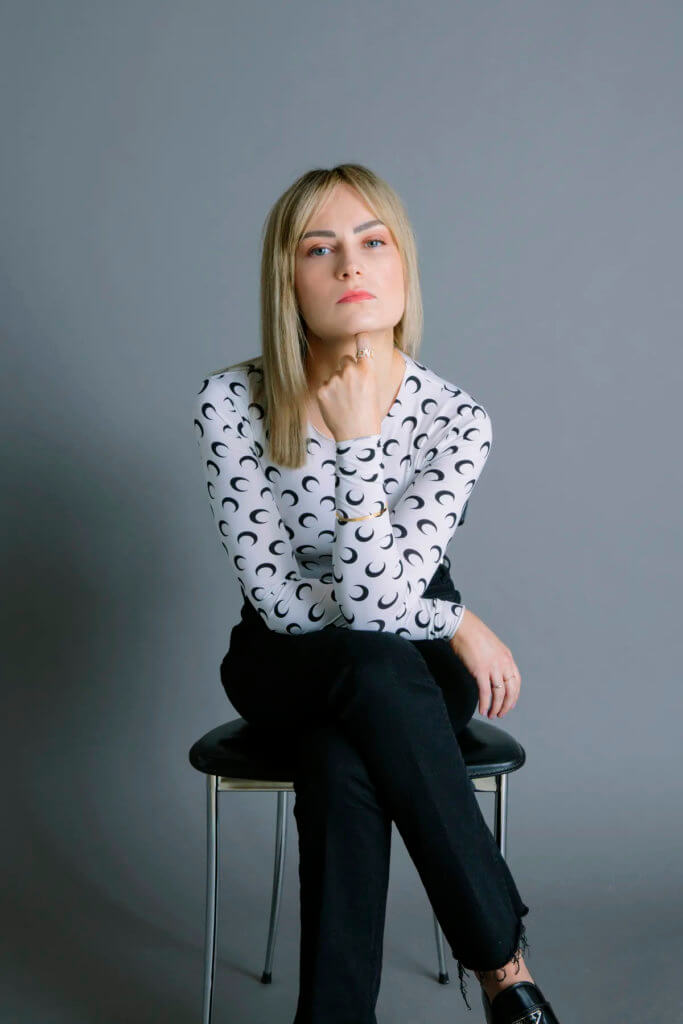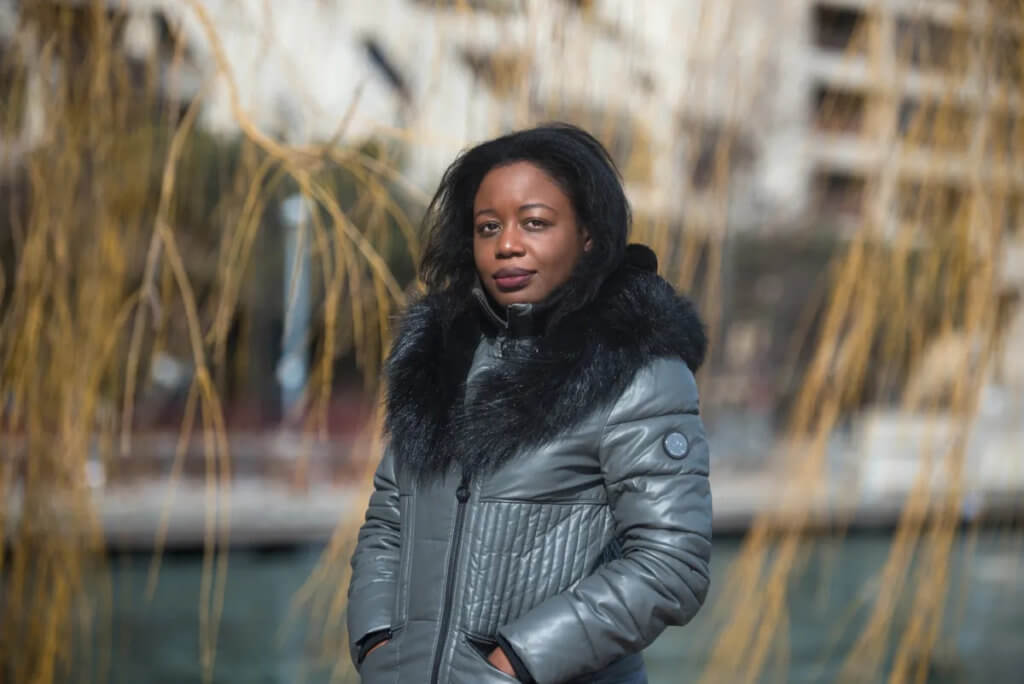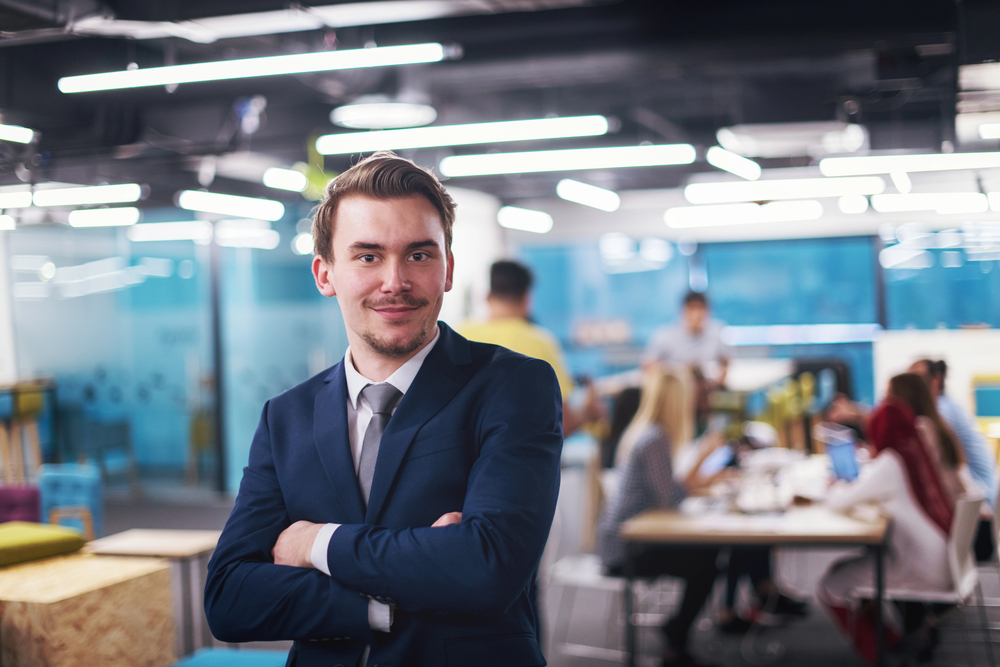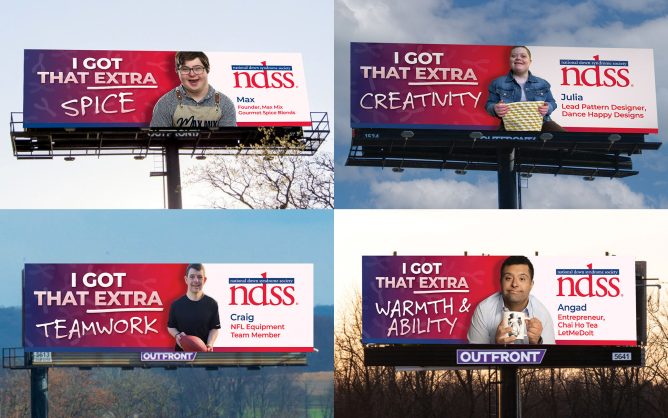Toronto-based entrepreneur Eyra Abraham founded Lisnen, a mobile app that allows users to receive notifications of critical sounds like fire alarms and sirens.
This article is part of a package produced by the Globe Women’s Collective around International Women’s Day and this year’s theme of #BreakTheBias
Eyra Abraham felt the call to entrepreneurship like an alarm ringing in the middle of the night. More specifically, one that she couldn’t hear – with potentially life-threatening consequences.
“I slept through a fire drill in this condo that I had purchased in Nova Scotia,” says Ms. Abraham, who is hard of hearing and wasn’t able to hear the alarm out in the building’s hallway. “I only found out that I missed it when the property manager [mentioned it].”
When she investigated ways to make sure that didn’t happen again, Ms. Abraham’s only options were rewiring her entire apartment (which would be expensive and inconvenient) or purchasing a device from the U.S. to amplify the sound from the hallway (one that didn’t even work because fire alarm tones are different in Canada). Knowing she was moving soon, Ms. Abraham just left things as they were.
Fast forward to her next apartment, this time in Toronto: one night Ms. Abraham woke up to the smell of smoke. She checked her phone, looking to see if the building had texted her an alert to evacuate, which is how they were supposed to accommodate people with hearing loss for emergency alerts. Nothing.
“I called the front desk and nobody was answering,” recalls Ms. Abraham of her panic as she wondered if she was the last person left in the building. “I finally Googled and found that it was a fire a couple blocks away and the smoke was just going through the building.”
It was a crystallizing moment for Ms. Abraham. She realized that what she wanted was a solution with sound recognition that worked with her own smart device, “so wherever I go I can get notifications, and I don’t need to go through the whole procedure to get assistive care or a device installed or any of that.”
Not long after, in 2017, Ms. Abraham founded Lisnen, a mobile app that uses artificial intelligence to identify sounds like fire alarms or sirens and turn those into notifications that deaf or hard of hearing people can use to be aware of everything that’s going on around them.
“I got frustrated waiting for someone else to make it,” says Ms. Abraham, who was working in communications at the time but had studied computer science at university. “I decided to take it on myself.”
That motivation – seeing a need that no one else is addressing and going for it – is a common thread in many entrepreneurial origin stories. For founders of intersecting marginalized identities, including those with a disability like Ms. Abraham, innovation often comes from living in a world built for a very narrow window of human experience, where founders can see space for new ideas because they have an outsider’s perspective.
‘Silent awkwardness’
People with disabilities are vastly under-represented in entrepreneurship – a 2021 BDO study showed that just 0.5 per cent of small or medium-sized businesses in Canada are owned by a person with a disability, despite the fact that an estimated 22 per cent of Canadians live with one or more disability. While the range of businesses helmed by people with disabilities is varied, these business owners often face common barriers.
Ms. Abraham says there is often a “silent awkwardness” when she first walks into a room with potential investors.
“The reality is, there are not a lot of people like myself coming into these meetings and having these conversations with stakeholders or partners,” Ms. Abraham says. “There’s a lot of relationship-building and trust that takes time, so I have to quickly identify commonalities with that person so they realize that I’m not different [from them].”
Ms. Abraham points out that while some might see a product like Lisnen as being solely for people with disabilities, the pioneering work of entrepreneurs with disabilities has often benefitted the masses.
“Most of the technology we have in the mainstream started with a use case to support people with disability,” says Ms. Abraham, pointing to the telephone, which Alexander Graham Bell first developed as a speech aid for deaf people, and texting, which Nokia introduced as an alternative for audio communication. She also points to voice-activated devices like Siri and Alexa, which use technology first developed as assistive technologies.
If information like that was more widely known, it could be the “missing link” to getting stakeholders and investors on board a bit easier, Ms. Abraham says.
“There’s a potential return for investors,” she says. “This is not a niche for a few thousand people. This is a product that can impact many people around the world.”
Breaking the corporate mould
For Stefani Blazevic, entrepreneurship was about carving out a career when the corporate mould didn’t fit.
While her goal had always been to start her own business eventually, Ms. Blazevic’s autoimmune condition meant that her years in corporate were, in her words, “not easy.” She had to take vacation days for medical appointments and struggled to get crucial resources such as an ergonomic keyboard. Plus, the pressure of long hours and travel caused her disease to progress.
When she was “packaged out” of her position, Ms. Blasevic says she knew it was time to launch her own venture. Now, she runs a recruiting firm, InfloHR, which affords her the autonomy, flexibility and earning power she didn’t have before.
“If I want to work part-time, I can scale back. If I want to hire someone, I can do that. It’s up to me,” she says.
Like many other people with disabilities, necessity forced Ms. Blasevic to create her own space to flourish, and it’s part of why she works hard to find those same opportunities for other people.
“It’s my calling,” she says of finding the right fit for both candidates and employers. Along the way, she shares her work/life tips – such as ways to leverage technology to automate the mundane parts of her job – to ensure that people of all abilities find the same kind of career satisfaction she’s found by forging her own path.
Paving the way for others
Role models matter, whether their precise lived experience is exactly your own or not, says content creator Molly Burke.
In Ms. Burke’s case, that role model was her mom, who was a serial entrepreneur throughout her childhood.
“Whenever I would get stressed about the lack of opportunities for a blind woman like me, my mom would tell me, ‘You don’t have to rely on somebody to hire you. You can start your own business,’” recalls Ms. Burke, who gradually lost her sight as a child due to retinitis pigmentosa.
“Starting my own business wasn’t scary to me because it was something that I had been taught was very much in my realm of capability,” she says, adding that she launched her first business – a motivational speaking venture – after binging Dragon’s Den and Shark Tank.
Ms. Burke now runs a thriving multimedia company (which includes a YouTube account with nearly two million subscribers) and employs several people. “

“If everything I built goes away one day, I will still follow the path of entrepreneurship,” she says. “Every dream I have is a dream of starting a business of some kind. I think blindness just helped me find a specific path at a younger age.”
Canadian YouTuber Molly Burke says the resilience she developed while growing up with a visual impairment has been an asset as an entrepreneur.
DONNEL GARCIA
Having said that, Ms. Burke notes that blindness has also been a source of discrimination in her life and work.
“I used to get comments from people saying that I wouldn’t be a successful YouTuber if I wasn’t blind,” she says. “I hate that people put my success down to my biggest challenge in life, because that’s not fair.”
In fact, Ms. Burke’s manager was told not to bother taking her on because “there’s no space for a blind person in this industry.” But her persistence has helped paved the way for other content creators with disabilities, something she’s incredibly proud of.
Ms. Burke says that the resilience people with disabilities are forced to develop is an asset when it comes to building a business.
“Being an entrepreneur is hard for everyone, but we as disabled people know that life is hard in general, and life isn’t fair,” she says. “We’re so used to overcoming challenges, so doing something hard isn’t actually new to us. The benefits of entrepreneurship far outweigh the challenges we face.”
Like Ms. Burke, Eyra Abraham hopes to clear the path for other entrepreneurs with disabilities, particularly when it comes to helping them get the support and funding they need to grow their businesses.
“The more experiences [investors] can have with different types of people, the better it can go for others who are trying to [get] these opportunities,” she says. “There’s always that person who has to step first.”
Credit: SARAH LAING




